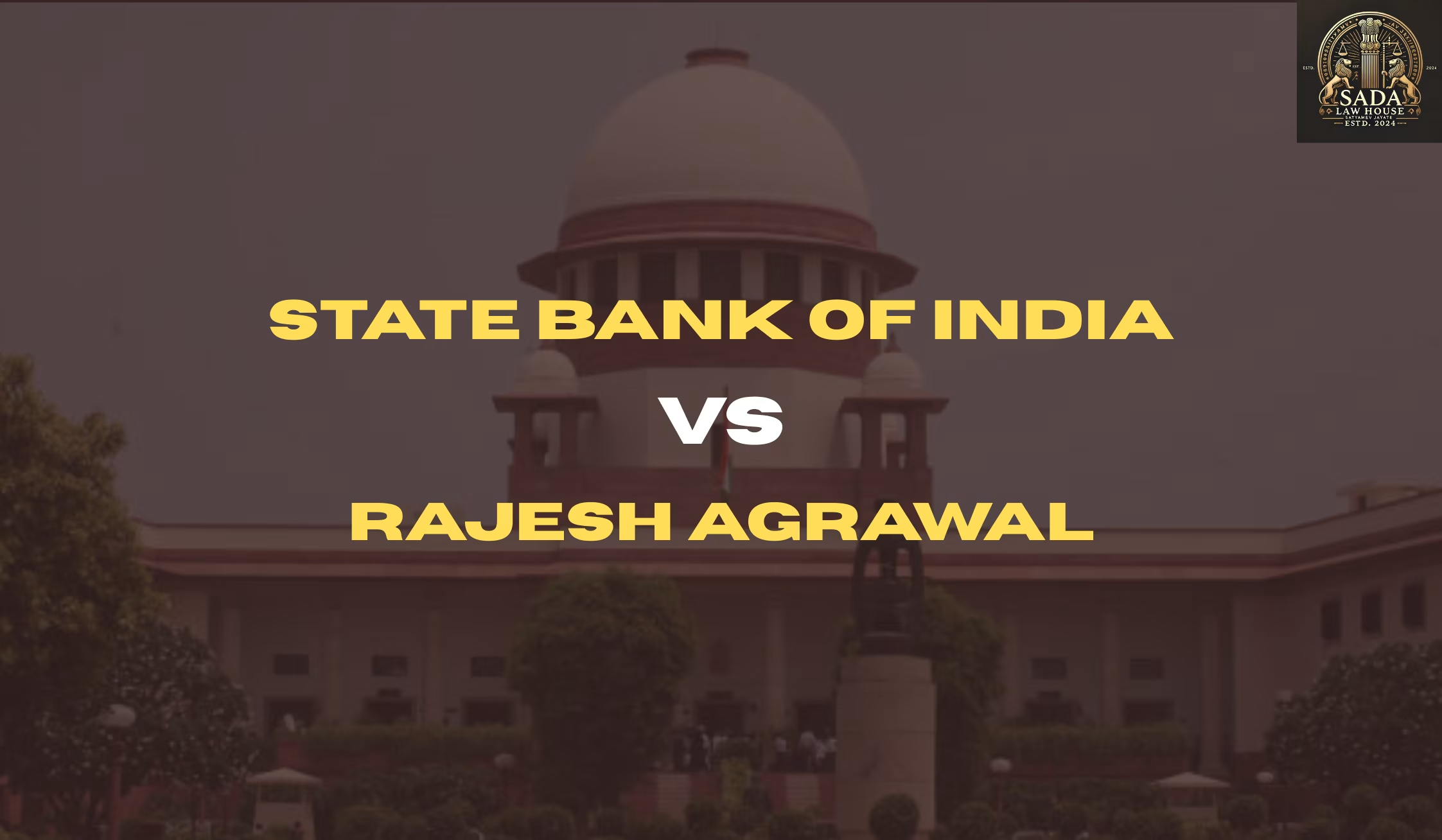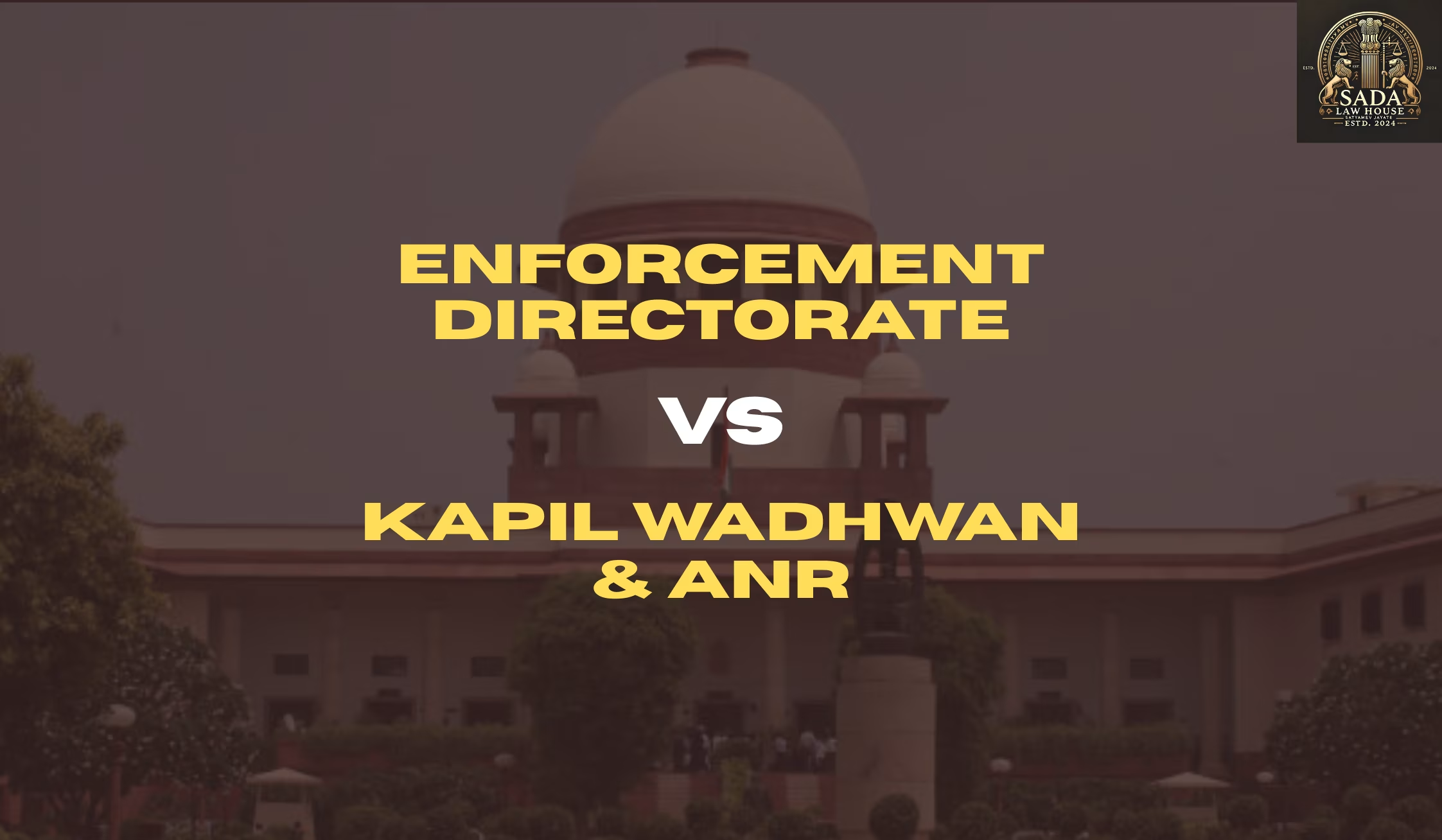Supreme Court Judgment on Arbitration Appeals: Limits on Remand and Emphasis on Efficiency in Bombay Slum Redevelopment Case (2024)
- REHA BHARGAV
- 09 June 2025

The Supreme Court of India’s landmark judgment in Bombay Slum Redevelopment Corporation Pvt. Ltd. v. Samir Narain Bhojwani clarifies appellate powers under Section 37 of the Arbitration and Conciliation Act, 1996. Discover how this ruling emphasizes brevity and efficiency in arbitration appeals.
Introduction
The Supreme Court of India recently delivered a crucial judgment in the arbitration appeal case Bombay Slum Redevelopment Corporation Pvt. Ltd. v. Samir Narain Bhojwani on July 8, 2024. This ruling clarifies the scope of appellate authority under Section 37 of the Arbitration and Conciliation Act, 1996, particularly restricting the power of appellate courts to remand cases. It highlights the judiciary’s focus on promoting efficiency and brevity in arbitration proceedings to uphold arbitration as a swift and effective dispute resolution method.
Background of the Case
Parties Involved
Petitioner: Bombay Slum Redevelopment Corporation Pvt. Ltd. (BSRCL) (a private developer)
Respondent: Samir Narain Bhojwani (contractor)
Case Facts
In 2003, BSRCL and SNB entered into a development agreement for a slum rehabilitation project in Mumbai. SNB was responsible for constructing 120 flats, divided as 55% for BSRCL and 45% for SNB. Disputes over project execution led SNB to initiate arbitration proceedings.
The Arbitral Tribunal in 2018 ruled in favor of SNB, directing BSRCL to hand over possession of certain flats. BSRCL challenged this award under Section 34 of the Arbitration and Conciliation Act. The Single Judge of the Bombay High Court set aside the award, leading SNB to appeal under Section 37. The Division Bench remanded the matter back to the Single Judge without addressing the merits, prompting the Supreme Court of India’s intervention.
Key Legal Issue
Does the appellate court under Section 37 have the authority to remand arbitration cases to the lower court, or is its role strictly limited to affirming, modifying, or setting aside the arbitral award?
Arguments Presented
Petitioner’s Viewpoint
The Division Bench exceeded its jurisdiction by remanding the case.
Section 37 confines the appellate court’s power to reviewing the award’s legality only.
Remanding cases prolongs litigation and contradicts the arbitration’s purpose of speedy dispute resolution.
Respondent’s Viewpoint
Judicial discretion permits remanding for a thorough re-examination of facts.
Previous case law supports remands to ensure justice is served.
Supreme Court Judgment and Ruling
The Supreme Court of India decisively set aside the Division Bench’s remand order. The ruling confirms that appellate courts under Section 37 have limited powers and remand is only permissible in exceptional circumstances. The Court stressed the importance of minimizing unnecessary delays to maintain arbitration’s efficiency.
The Court also directed the Bombay High Court Division Bench to decide the appeal based on the merits, considering both the arbitral award and the Single Judge’s order, without remanding the matter again.
Conclusion: Impact on Arbitration Law
This landmark judgment reinforces the Supreme Court of India’s commitment to streamlining arbitration appeals by:
Limiting appellate intervention strictly to affirming, modifying, or setting aside awards.
Discouraging routine remands that delay resolution.
Promoting brevity and efficiency in arbitration to uphold its role as an effective alternative to traditional litigation.
For legal practitioners and parties involved in arbitration, this ruling is a reminder to avoid bulky pleadings and focus on clear, concise submissions to expedite dispute resolution.
Case Laws







